Body Protein
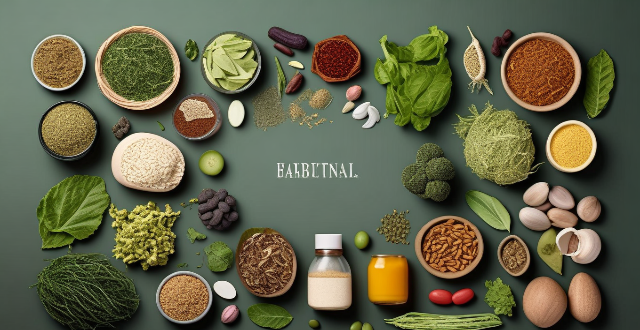
What role does protein play in a healthy diet ?
Protein is an essential nutrient that plays a crucial role in maintaining a healthy diet. It contributes to tissue growth and repair, enzyme and hormone production, immune system function, fluid balance, and energy provision. Consuming a variety of protein sources is important to ensure all necessary amino acids are obtained.

How much protein do I need for muscle recovery ?
Protein is vital for muscle recovery, especially after intense workouts. Sedentary adults need 0.8g/kg, while athletes require more. Timing and quality of protein intake matter. Tips include dietary variety, supplementation if needed, meal planning, and monitoring intake.

Is it necessary to follow a high-protein diet for strength training
A high-protein diet can be beneficial for strength training, but it is not absolutely necessary as long as enough protein is consumed to support muscle growth and repair. Reasons for a high-protein diet include muscle repair and growth, increased metabolism, satiety, and improved recovery. However, the amount of protein needed varies based on individual factors, and general guidelines for intake during strength training are 0.8-1.2 grams per kilogram of body weight, with a source of protein consumed within 30-60 minutes after a workout. High-quality sources of protein should also be chosen.

How can I ensure that I'm getting enough protein in my diet ?
Protein is crucial for muscle growth, hormone regulation, and immune support. To ensure you get enough, calculate your needs, choose quality sources like lean meats and legumes, include protein in every meal, snack smartly, read nutrition labels, and consider supplements if needed. Variety and quality are key.
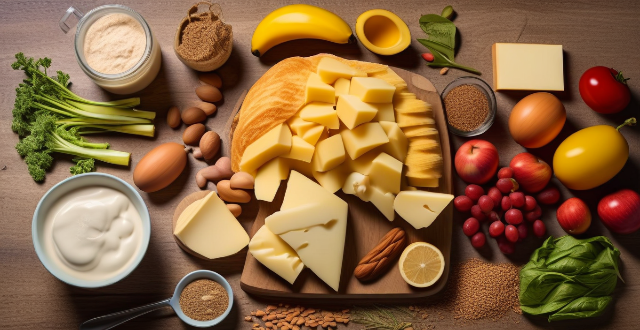
What are the best sources of lean protein for breakfast ?
Including lean protein in your breakfast can help you feel fuller for longer and reduce the likelihood of overeating later in the day. Some of the best sources of lean protein for breakfast include eggs, Greek yogurt, cottage cheese, tofu, nut butters, quinoa, turkey bacon, chia seeds, edamame, and roasted chickpeas. These foods are high in protein and other essential nutrients like calcium, fiber, and healthy fats. They can be prepared in various ways and combined with other ingredients to create a balanced and satisfying breakfast.

How do I balance protein and carbohydrates in my breakfast ?
Balancing protein and carbohydrates in your breakfast is essential for maintaining a healthy diet. Here are some tips on how to achieve this balance: 1. Choose a protein source (e.g. eggs, Greek yogurt, cottage cheese, tofu, nut butter). 2. Add complex carbohydrates (e.g. whole grain bread or toast, oatmeal, fruits, vegetables). 3. Incorporate healthy fats (e.g. avocado, nuts, seeds, olive oil). 4. Consider portion sizes and use measuring cups or a food scale if needed. 5. Plan ahead by prepping ingredients or preparing meals in advance. 6. Be mindful of added sugars and choose whole, unprocessed foods whenever possible.
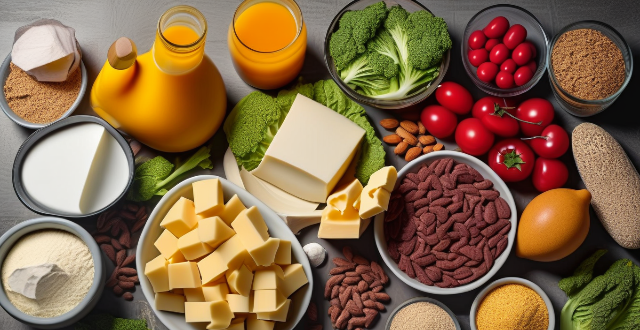
How can I make my breakfast more protein-packed ?
To make your breakfast more protein-packed, start with a high-protein base like eggs or Greek yogurt. Add nuts and seeds for extra protein and healthy fats. Incorporate legumes such as chickpeas or lentils into savory breakfast dishes. Don't forget dairy products like milk and cheese for added protein. Get creative with grains by combining them with other protein sources like overnight oats with Greek yogurt and nuts. By using these strategies, you can increase the protein content of your morning meals while keeping them interesting and satisfying.
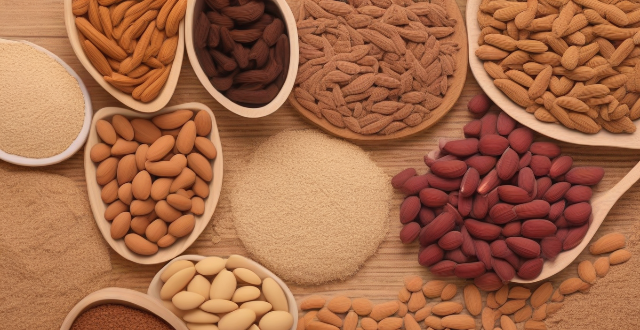
What are some low-calorie protein sources that are also high in fiber ?
Low-calorie protein sources that are also high in fiber include lentils, chickpeas, quinoa, edamame, almonds, chia seeds, black beans, artichokes, and peas. Incorporating these foods into your diet can help you achieve your weight loss goals while providing your body with the nutrients it needs to function properly.

What kind of diet is recommended for women who want to lose weight through exercise ?
Recommended diet for women who want to lose weight through exercise includes lean protein, complex carbohydrates, healthy fats, and plenty of water. It's important to eat a light meal or snack before workouts and refuel with protein and carbohydrates after exercising. Portion control and avoiding empty calories are also crucial for weight loss success.
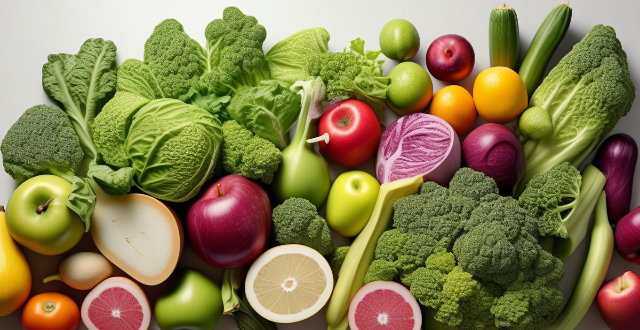
How can I improve my athletic performance through diet
Improving athletic performance through diet involves eating a balanced diet, increasing protein intake, consuming plenty of fruits and vegetables, drinking enough water, avoiding processed foods, eating before training or competition, and considering supplements. A balanced diet includes carbohydrates, proteins, and healthy fats in the right proportions. Protein is essential for building muscle and repairing damaged tissues, while fruits and vegetables are rich in vitamins, minerals, and fiber. Drinking enough water is crucial for staying hydrated during exercise. Avoiding processed foods can prevent harm to your performance and health. Eating before training or competition can provide energy and prevent fatigue. Supplements such as whey protein powder, amino acids, and BCAAs can improve performance but should be taken under the guidance of a nutritionist or doctor.

What are the best foods to eat before and after a workout ?
Eating the right foods before and after a workout can significantly impact your performance and recovery. Before exercising, opt for easily digestible carbohydrates like whole grain bread or bananas for energy, and include some protein such as Greek yogurt to prevent muscle breakdown. After your workout, focus on replenishing lost nutrients with proteins from lean meats or eggs, and carbohydrates from quinoa or fruits to aid recovery. Hydration is key both before and after exercise; water and coconut water are great choices for maintaining fluid balance. Avoid heavy, fatty, or spicy foods before working out, and steer clear of alcohol and processed foods post-workout.
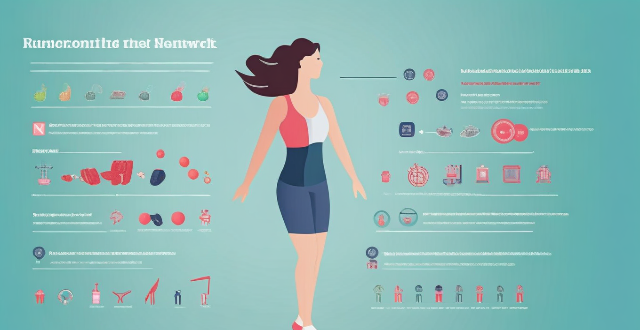
What role does nutrition play in sports injury recovery ?
Nutrition plays a crucial role in sports injury recovery by providing the body with essential nutrients for tissue repair and growth. Protein, vitamins, minerals, and fluids are all important for healing, and proper nutrition can help speed up the process. In addition to nutrition, other factors such as rest, stress management, and physical therapy also play a role in sports injury recovery.
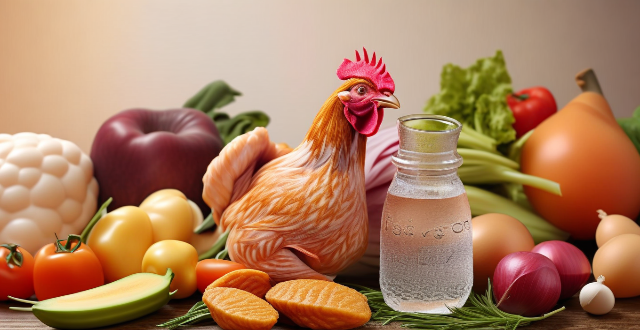
What should I eat after a workout to build muscle
After a workout, it is important to provide the body with nutrients for muscle repair and growth. Protein-rich foods like chicken breast and Greek yogurt are essential for muscle growth. Complex carbohydrates like sweet potatoes provide sustained energy. Healthy fats from sources such as avocados and nuts help absorb vitamins. Staying hydrated with water is crucial for muscle function. A balanced diet with fruits, vegetables, and fiber supports long-term muscle health.

What are the best foods to eat after a strenuous exercise session
After a strenuous exercise session, your body needs energy to recover and repair itself. Carbs are the best source of energy for your muscles and help replenish glycogen stores. Good sources of carbohydrates include whole grains, fruits, and vegetables. Protein is essential for muscle growth and repair after a workout. It helps rebuild damaged muscle tissue and increase strength and endurance. Good sources of protein include lean meats, fish, eggs, and plant-based proteins like beans and lentils. Water is important to stay hydrated and aid in recovery. Drinking water also helps flush out toxins from your body and prevent cramping. Exercise can cause electrolyte imbalances, which can lead to fatigue and cramping. Consuming foods rich in electrolytes like potassium, sodium, and magnesium can help restore balance and improve performance during recovery. Healthy fats are an important part of a balanced diet, especially after a workout. They provide energy for your body and help with hormone production and inflammation regulation. Vitamins and minerals are depleted during exercise, so it's important to consume foods that are rich in these nutrients during recovery.

What are the best post-workout recovery techniques
The text discusses the importance of post-workout recovery for achieving optimal physical performance and preventing injuries. The author recommends several techniques including stretching, hydration, protein intake, foam rolling, massage therapy, active recovery, and sleep. Stretching improves flexibility and reduces muscle soreness, while hydration replaces lost fluids during exercise. Protein intake helps repair and rebuild muscles, foam rolling relieves muscle tension, massage therapy reduces inflammation, active recovery promotes circulation, and sleep allows the body to repair and rebuild itself. Incorporating these techniques into a routine can help improve performance and prevent injuries.

Do yoga poses have different effects on the body and mind ?
Yoga poses have different effects on the body and mind, including improved flexibility, strength, balance, stress reduction, concentration, and emotional release. Incorporating a variety of poses into your practice can help you achieve specific goals and transform your body and mind.
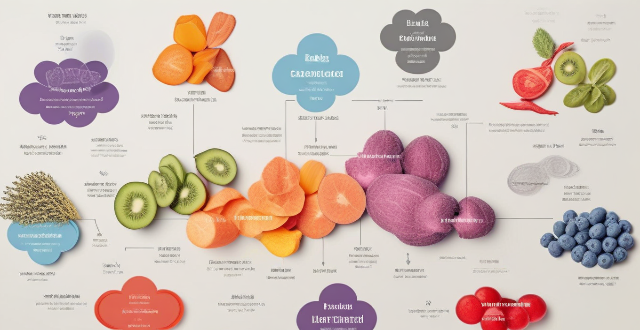
What kind of foods should I eat to aid in muscle recovery
Eating a balanced diet that includes carbohydrates, protein, healthy fats, water, and vitamins and minerals is essential for muscle recovery after exercise. Complex carbohydrates provide energy for muscles during recovery, while protein helps repair and grow them. Healthy fats support overall health and reduce inflammation. Drinking enough water flushes out toxins and maintains a healthy fluid balance in the muscles. Vitamins and minerals, such as vitamin C, vitamin D, and iron, are also important for muscle function and recovery.

What is a good marathon diet plan ?
A good marathon diet plan should provide the necessary nutrients and energy to support an athlete's training and performance during a marathon. It should include a high-carbohydrate diet, protein needs, and healthy fats. A high-carbohydrate diet should provide around 60-70% of total daily calories from carbohydrates, while protein needs should provide around 10-20% of total daily calories. Healthy fats should make up around 20-35% of total daily calories. Good sources of carbohydrates include whole grains, fruits, vegetables, legumes, and low-fat dairy products. Good sources of protein include lean meats, poultry, fish, eggs, nuts, seeds, and plant-based proteins like tofu and tempeh. Good sources of healthy fats include olive oil, avocados, nuts, seeds, fatty fish (such as salmon), and dark chocolate.